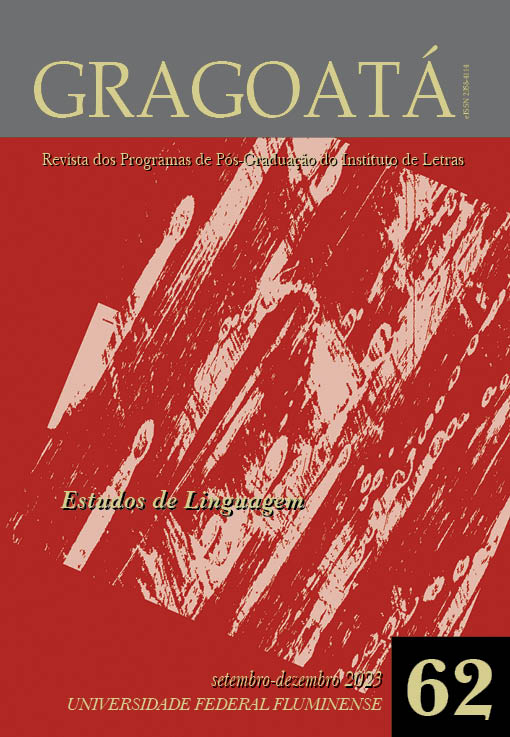Saudades: Toward a Sociopoetics of Diaspora, Migration, & Exiled Writing
DOI:
https://doi.org/10.22409/gragoata.v28i62.58721.enPalabras clave:
Decolonial, Visual-poetry, Saudades, Diasporic, Avant-gardeResumen
Unpacking the term saudades, this article weaves together Claude Lévi-Strauss's research in Brazil for Tristes Tropiques with both Oswald de Andrade's 1928 Manifesto Anthropofago, and Rose and Bob Brown's visual poetry, travel guides, cookbooks, and young adult history books about Brazil. One can consider these projects as decolonial theory, poetry, and sociopoetics seventy or eighty years before decolonial theory became a widely discussed term. Augusto de Campos of the Noigandres group and a leader of the International Concrete Poetry movement wrote introductions to facsimile editions of both Oswald de Andrade's manifesto and then later to Bob Brown's republished collection of visual poems, 1450-1950. Although almost completely unknown now, Rose herself authored three children’s books, Two Children of Brazil, Two Children and their Jungle Zoo, and Amazon Adventures of Two Children, one social geography, Land and People of Brazil, and one biographical history, American Emperor: Dom Pedro II of Brazil, all while living in Brazil. Rose and Bob together edited the Brazilian American business weekly in the early and mid-1920s. All of these people may have known each other in Brazil as they worked and lived among overlapping circles of friends and colleagues involved in the modernist avant-garde, but as-of-yet, whether they met or not remains a mystery.
Descargas
##submission.downloads##
Publicado
Cómo citar
Número
Sección
Licencia
Derechos de autor 2023 Gragoatá

Esta obra está bajo una licencia internacional Creative Commons Atribución 4.0.
AUTORIZAÇÃO
Autores que publicam em Gragoatá concordam com os seguintes termos:
Os autores mantêm os direitos e cedem à revista o direito à primeira publicação, simultaneamente submetido a uma licença Creative Commons Atribuição 4.0 Internacional (CC BY 4.0), que permite o compartilhamento por terceiros com a devida menção ao autor e à primeira publicação pela Gragoatá.
Os autores podem entrar em acordos contratuais adicionais e separados para a distribuição não exclusiva da versão publicada da obra (por exemplo, postá-la em um repositório institucional ou publicá-la em um livro), com o reconhecimento de sua publicação inicial na Gragoatá.
A Gragoatá utiliza uma Licença Creative Commons - Atribuição CC BY 4.0 Internacional.














